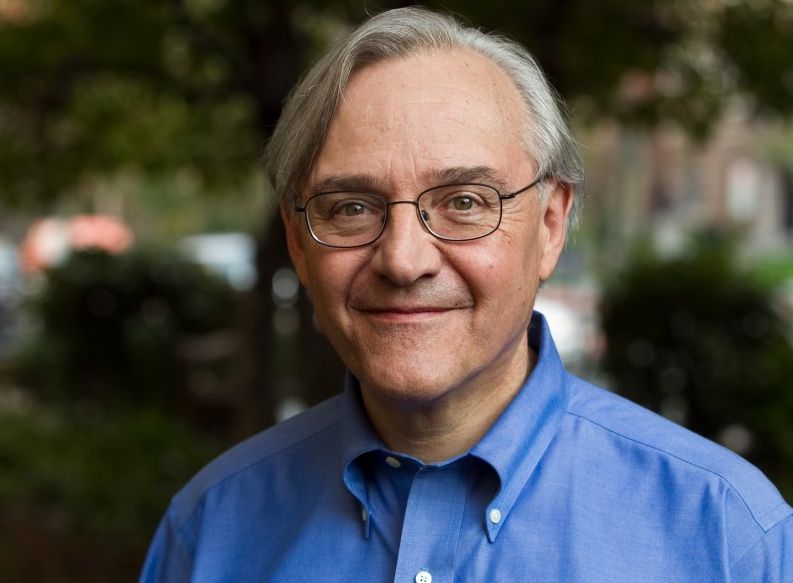
Empathy Deficit Disorder
While being interviewed on a panel last year, E.J. Dionne joked that he wanted a hat that said “Make America Empathetic Again.” Afterward, he received a note from a man who said he liked the new slogan and would make them for Dionne and his colleague at the discussion, New York Times columnist David Brooks.
The man followed through and today Dionne, a senior fellow at the Brookings Institution and a columnist for the Washington Post, loves his red hat, even if his son tells him it’s a little too much like one that demands that someone make the country great again. “It was absolutely a perfect replica of the Trump hat except the word ‘empathetic,’ ” Dionne said. “That was what was inspired me to give this talk for the Capps Center.”
If he can remember to pack it, Dionne will bring his hat to Santa Barbara’s Lobero Theatre Tuesday, Feb. 28, at 8 p.m., when he gives a talk titled “Make America Empathetic Again.” Sponsored by the Walter H. Capps Center for the Study of Ethics, Religion and Public Life at UC Santa Barbara, the lecture will focus on what Dionne sees as a national inability to understand the feelings and perspective of others. The event is free and open to the public.
“We have all kinds of problems in American life right now, and I never claim there is anything like a single solution,” Dionne explained. “But I think one of the problems at the heart of all the others are the difficulties we are having feeling empathy with the claims of legitimate problems of people who vote differently than we do.
“We almost set up a series of false choices when it comes to empathy,” he continued. “If you empathize with an African American or immigrant with their struggles it seems you can’t empathize with the white working class, or the other way around. But that’s obviously absurd. We really can’t be selective when it comes to the empathy. In fact, many of the problems that created the industrial decline in Erie, Penn., or Bay County, Mich., are the same problems inner cities have faced for decades.”
The economic uncertainty and inequality that have gathered steam over the past three decades have exacerbated our national empathy deficit, Dionne said. “The decline of well-paying blue-collar work cuts across all lines of race and ethnicity,” he noted. “Similarly, it ought to be possible to empathize with African American parents who fear their son might be shot by the police and still understand that police officers have a very hard job.
“I know for myself that the rise of the Black Lives Matter movement made me think a lot about how I would feel if I had to worry every night about my son, who was a teenager not too long ago,” Dionne added. “We should all be able to feel that fear and sense of injustice.”
Dionne received a D.Phil. in sociology from Oxford University, where he was a Rhodes Scholar. He is a professor in the Foundations of Democracy and Culture at Georgetown University, where he teaches in the McCourt School of Public Policy.



